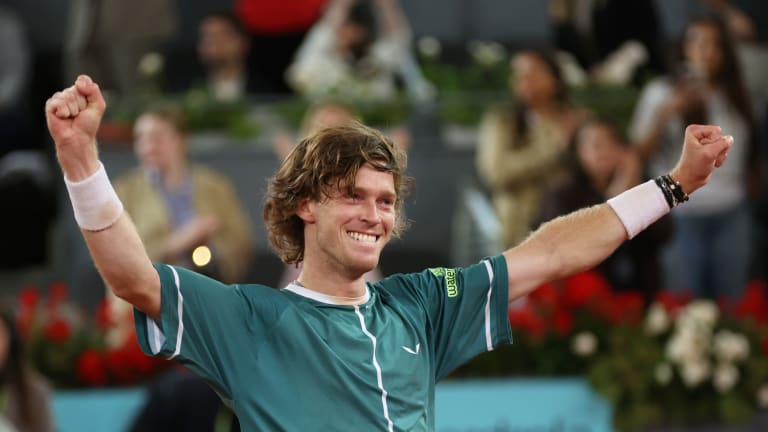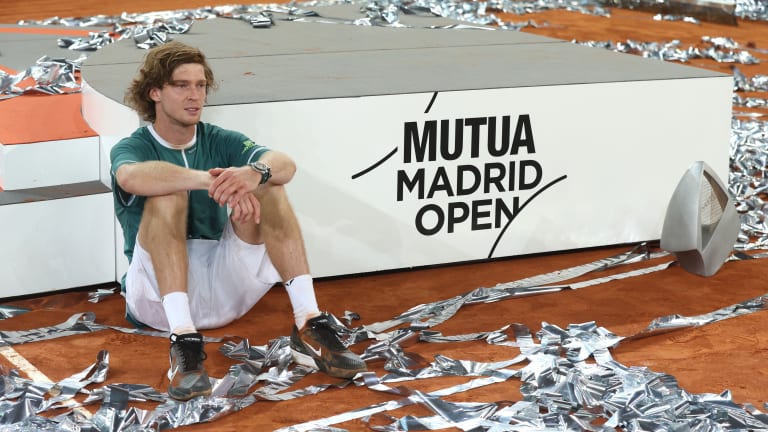Madrid, Spain
Andrey Rublev is the 'most proud' he's ever been after defying adversity in Madrid victory
By May 05, 2024Madrid, Spain
Andrey Rublev overcomes fever and praises doctors after winning Madrid Open for the first time
By May 06, 2024Madrid, Spain
Andrey Rublev rallies, then outlasts, Felix Auger-Aliassime to win Madrid title
By May 05, 2024Madrid, Spain
Big finals don’t get much tighter, or better, than Iga Swiatek and Aryna Sabalenka's melee in Madrid
By May 05, 2024Madrid, Spain
Preview: Andrey Rublev, Felix Auger-Aliassime seeking a turnaround in Madrid final
By May 04, 2024Madrid, Spain
Iga Swiatek saves three match points to beat Aryna Sabalenka in Madrid Open final
By May 04, 2024Madrid, Spain
Iga Swiatek topples Aryna Sabalenka in heavyweight title clash for first Madrid Open crown
By May 04, 2024Madrid, Spain
Preview: Iga Swiatek, Aryna Sabalenka run it back with another all-Top 2 Madrid final
By May 03, 2024Madrid, Spain
Andrey Rublev beats Taylor Fritz to reach Madrid Open final against Felix Auger-Aliassime as Jiri Lehecka joins injured list
By May 03, 2024Madrid, Spain
Felix Auger-Aliassime reaches first ATP Masters 1000 final in Madrid when Jiri Lehecka retires
By May 03, 2024Madrid, Spain
Andrey Rublev is the 'most proud' he's ever been after defying adversity in Madrid victory
Whether he was facing Carlos Alcaraz, a mystery illness, or 14 aces from Felix Auger-Aliassime, Rublev kept calm and conquered them all.
Published May 05, 2024
Advertising

Rublev previously won an ATP Masters 1000 last year in Monte Carlo.
© Getty Images
Advertising

Rublev overcame an unknown illness, and a four-match losing streak, to win his second ATP Masters 1000.
© Getty Images